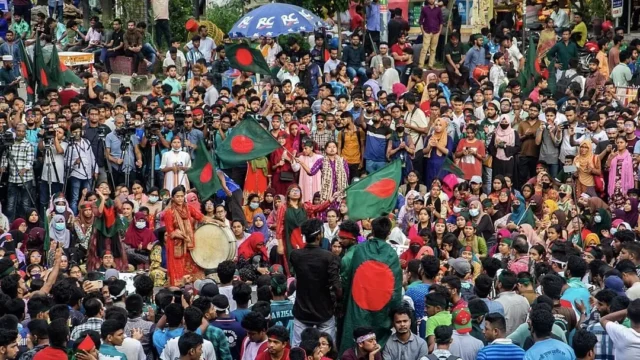Amid the bustling center of South Asia, Bangladesh is known for its resilience and growth. However, the nation is currently facing a storm of economic challenges, intensified by a widespread student movement protesting the civil service job quota system. This article explores the profound economic impacts of this unrest, painting a vivid picture of a country striving to balance its future amid present turmoil.
Disruption to Daily Life and Business Activities
The streets of Dhaka and other major cities have become battlegrounds of change, where students clash with police and pro-government forces. This turmoil has significantly disrupted daily life and business operations. Transport networks are frequently blocked, causing delays and logistical nightmares. Businesses that depend on the smooth flow of goods and employees are grappling with operational inefficiencies, leading to financial losses and reduced productivity (South China Morning Post) (The Diplomat).
Impact on the Education Sector
Educational institutions, the very epicenter of the protests, have been hit hard. Universities and schools are closing their doors temporarily, disrupting academic schedules. This interruption has economic implications beyond the immediate academic sphere. Educational institutions are substantial economic contributors, providing employment and generating demand for various services. Prolonged closures threaten the financial stability of these institutions and their associated businesses, creating a ripple effect throughout the economy (South China Morning Post).
Investor Confidence and Economic Stability
Investor confidence, a crucial pillar of economic stability, is wavering in the face of this unrest. Political instability and civil unrest are significant red flags for both domestic and international investors. The perception of Bangladesh as a volatile environment can deter foreign direct investment (FDI), which is essential for sustained economic growth and development. A decline in FDI could slow economic progress and limit job creation, exacerbating the country’s economic challenges (The Diplomat).
Tourism Industry
The tourism sector, although not the largest in Bangladesh, plays a vital role in the economy. The current violence and instability have made the country less attractive to tourists, resulting in cancellations and a decline in tourism-related revenue. Hotels, restaurants, and other businesses dependent on tourism are feeling the pinch, further straining the nation’s economic fabric (South China Morning Post).
Government Expenditure
Managing the protests has necessitated a significant increase in government spending on security and law enforcement. This reallocation of funds diverts resources from other critical areas such as infrastructure development, healthcare, and education. The increased expenditure on managing unrest adds to the fiscal pressure on the government, potentially slowing long-term economic progress (The Diplomat).
Final Thoughts
The student movement in Bangladesh has far-reaching economic impacts, disrupting daily life and business activities, affecting the education sector, shaking investor confidence, hampering the tourism industry, and increasing government expenditure. Addressing these economic repercussions requires not only resolving the immediate causes of the protests but also implementing broader economic and political reforms to restore stability and confidence in Bangladesh’s future.
Read more write-ups of this author: Click Here

About The Author:
Mirza Rakib Hasan Shovon
Managing Director & CEO
Aristo Tex International
To read more from the Editorial section: Click Here.


















